Employee Interview - Production bases in Thailand and Malaysia -

Striving for goals and dreams at work where we can be ourselves.
"Employee Interview" introduces some of the diverse employees making their mark in the JVCKENWOOD Group around the world. In this, our second overseas edition of the series, we introduce employees working at our production bases in Thailand and Malaysia.
JVCKENWOOD Electronics Malaysia Sdn. Bhd. (JKEM)
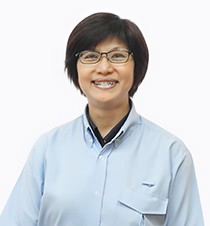
Tan Ah Choon
Joined JKEM in 1997. Division Manager, General Administration Division.
Joined the company in 1997. After graduating from university in Taiwan, Tan Ah Choon continue his master degree study in Japan, where she specialized in management and accounting. She worked for a Japanese company for several years before joining JKEM as a system engineer. After worked as Head of the IT department and the Operation Control Division, she became Division Manager of the General Administration Division in 2014.
Career
I joined JKEM as a system engineer and became manager of the IT department after a year. After that, I worked as the Manager of Material Administration Department, Deputy Division Manager of General Administration Division, and Division Manager of Operation Control Division, and I have been in my current position of Division Manager of the General Administration Division since 2014. Of course, my work has many challenges, but I don’t want it all to be just tough and difficult; I want to be able to enjoy my work. I also make a point of trying something different that I’ve never done before. It’s no fun doing the same thing all the time, so I try to suggest new ideas, even just one thing that everyone can approach with enjoyment. For example, JKEM has a campaign every year to promote 5S. If we were to simply go through the motions and do the same thing we do every year, the message would not get through to the employees, so I suggested that we come up with an original 5S song. I asked one employee who is very good at music to compose it, and gathered several members who are good singers together to record it in an actual recording studio. Now, we play it every Friday during 5S time. This is something that other companies don’t have and the employees love it. I want to keep coming up with these kinds of ideas and create a workplace environment in which the employees can enjoy their work.
Balancing Work and Home Life
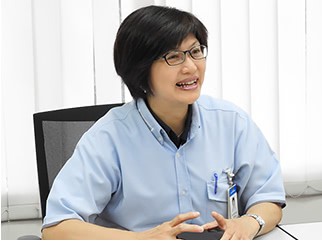
For six years, from when I got married until our youngest child turned three, we employed a domestic helper. Since then, with the help of a part-time domestic helper, our whole family shares the housework. I think it is probably the same in any country, but the key is to use the resources available as much as possible within the constraints of time and money. For example, if both parents work, asking the grandparents to look after the children during certain hours, or leaving the children with a babysitter during the week. Also, unlike Japan, Malaysia has very little of that mindset that "housework is women’s work." Husband and wife both work and husband and wife both do the housework and look after the children. Moreover, we also have the support of our parents and neighbors. With this kind of environment, gender has nothing to do with actively participating at work, and we are assigned work according to our abilities and aptitude.
Diversity & Inclusion
In Malaysia, people of multiple ethnicities, such as Malay, Chinese, and Indian, live alongside each other. Naturally, their religion and customs are also different, so companies need to be innovative and accommodating to create workplaces that are pleasant and comfortable for employees with diverse backgrounds. For example, on Fridays, Muslims have to go to the mosque to pray, so the lunch hour is a little longer than usual on Fridays. Also, during fasting periods, they are not able to eat while the sun is up. The times at which they take meals become irregular, so during this period, they are able to change their break times. Besides, employees bring a variety of requests every day. At times like that, I believe that balance is important. For example, if a certain community makes some kind of request, it may be something that would inconvenience other people. At such times, I bring the people involved together and we debate the issue. We may not necessarily come up with an answer that satisfies everyone, but I think it is important to explain carefully why they feel the need for that request and to discuss the issue on that basis.
Kenichi Watarai, President of JKEM
In Malaysia, throughout its long history, multiple ethnic groups have lived side by side. In Japan, there are fewer opportunities to encounter other cultures, so when we do encounter different cultures, we tend to tense up. In this country, however, people come into contact with different cultures on a daily basis, and they respect each other’s culture and customs as a matter of course as they go about their lives. In Malaysia, as people come into contact with each other, though their culture, language and religion may differ, they are all human beings with the same human emotions, and I have gained a real sense that responding to those feelings individually is what good communication is all about. I think there is much we can learn from Malaysia about things like respect for diversity and acceptance of other cultures.
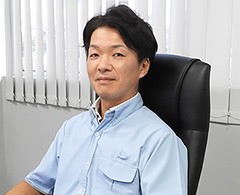
Scenes from JKEM

Exterior of JKEM
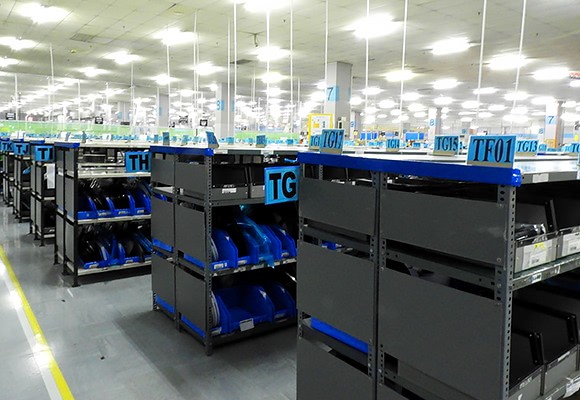
Parts Management Floor
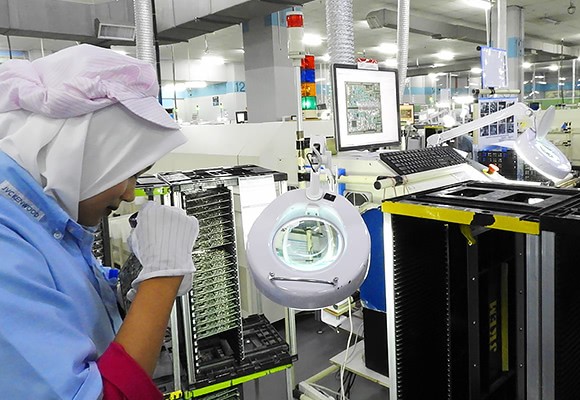
Muslims are given special Scarf
JVCKENWOOD Optical Electronics (Thailand) Co., Ltd. (JKOT)
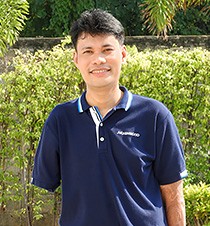
Visit Chatpimonrut
Joined JKOT in 2017. IT Section, Engineering Department.
Visit Chatpimonrut majored in Computer Engineering at university. After graduation, he worked as a programmer at a game company for two years before joining JKOT in 2017. He is currently responsible for software development and programming in the IT section.
Career to Date
When I was 12 years old, I lost my right arm in an accident. I accidentally touched an electric wire on my way home from a soccer match. The wire sparked all of a sudden and I was transferred to a hospital unconscious. The doctor told me that I had no choice but to cut my arm off, so I underwent amputation.
I majored in computer engineering at university and studied control hardware programming, embedded systems, and printed circuit board design. However, finding a job after graduation was not easy. Some companies didn’t even give me a chance to apply just because I was physically disabled. Then I finally found a job at a game company where I worked for two years as a programmer.
Later, I applied to JKOT to work for a manufacturer. Since it was one of my career goals, I was so happy and thrilled when I received a letter of acceptance.
What kind of work are you doing now?
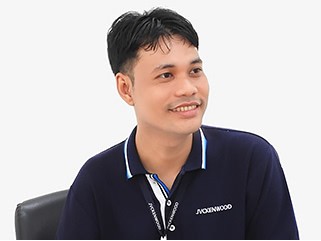
At the moment, I am working on in-house intranet system development and supporting user. Recently, I developed a barcode system for managing shipments. Previously, finished products had to be sorted by sight prior to shipment, but the introduction of my barcode system has made it possible to manage shipments more accurately and smoothly. I’ve also developed a bookings management system for in-house equipment and a system for counting attendees at company events. I want to keep studying many more things and become a specialist who is able to make JKOT’s operations more efficient from the IT aspect.
Diversity & Inclusion
JKOT makes a variety of accommodations for employees with disabilities and pregnant women. For example, the parking spaces closest to the office are allocated for the exclusive use of people with physical disabilities and pregnant women. These people are also given different break times so they can use the cafeteria and the restrooms with peace of mind. Also, JKOT has a culture of entrusting work to people based on their capabilities, regardless of whether or not they have a disability. The other day, I made a business trip to Singapore and Malaysia to attend a company-wide IT global meeting. At that meeting, I learned about cyber security, as well as about organizational behavior and culture, and I was able to tour the production bases in both countries. I could see that they were very advanced in terms of the introduction of IT, so I found it very stimulating.
Hideyuki Sato, President of JKOT
What I felt when I was first posted to Thailand was that gender equality is very firmly embedded here. For example, in many cases, the husband and wife cooperate in looking after children and housework, and they even have the help of their own parents as well. With this background, women come back to work quite soon after childbirth and they are back to a normal working schedule almost immediately. The people here also place great importance in family. For example, if one of their family is sick, it is quite natural for them to take the day off to take him/her to the doctor’s. In Japan, there is a feeling that putting family over work is frowned upon, but when I look at the people here, it makes me realize anew that there is absolutely nothing wrong with putting your family first.
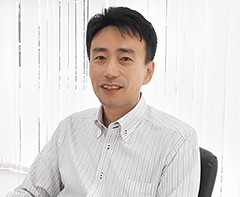
Scenes from JKOT
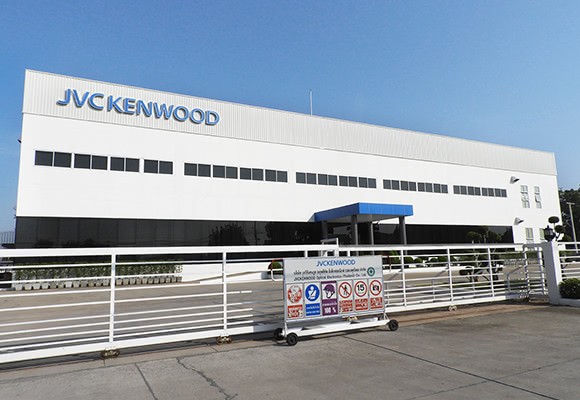
Exterior of JKOT
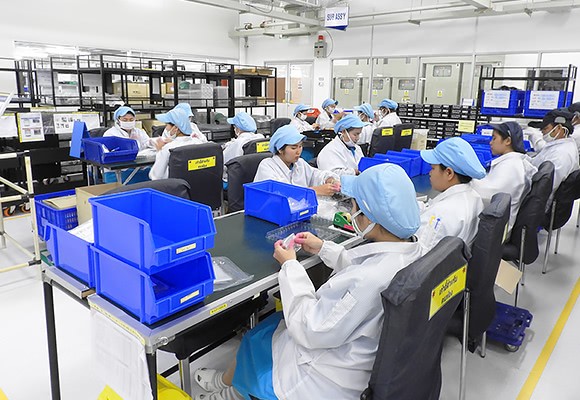
Line exclusively for pregnant women
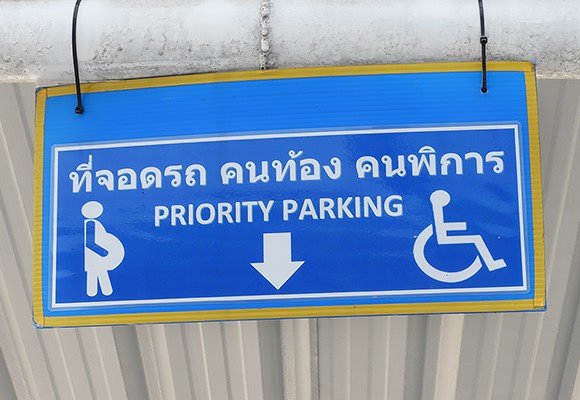
Parking spaces reserved for people with disabilities and pregnant women
* Job titles and affiliations are as of publication time.

